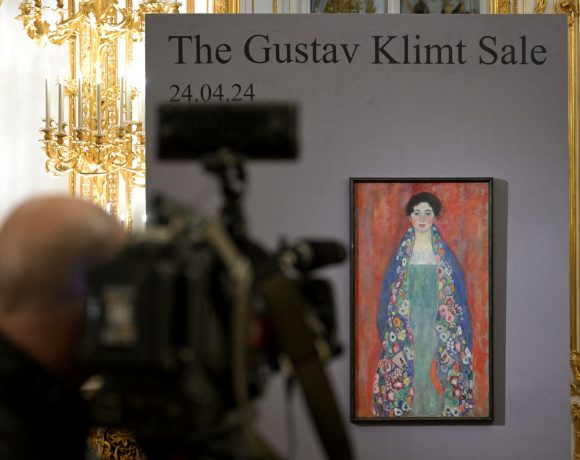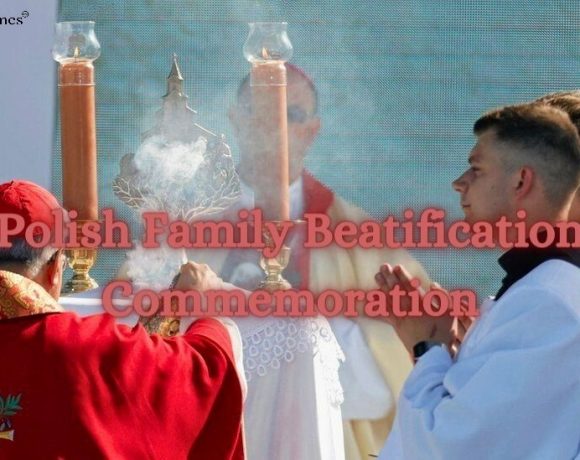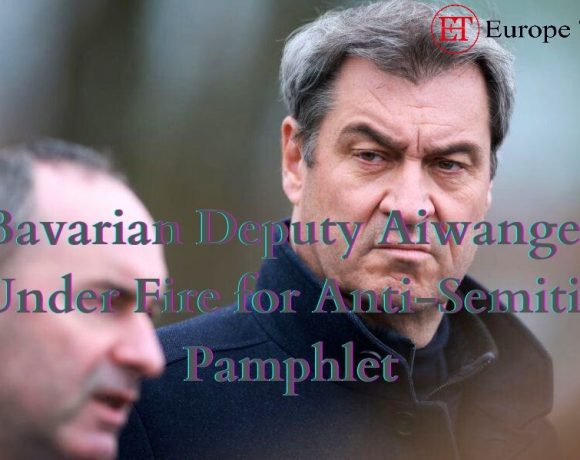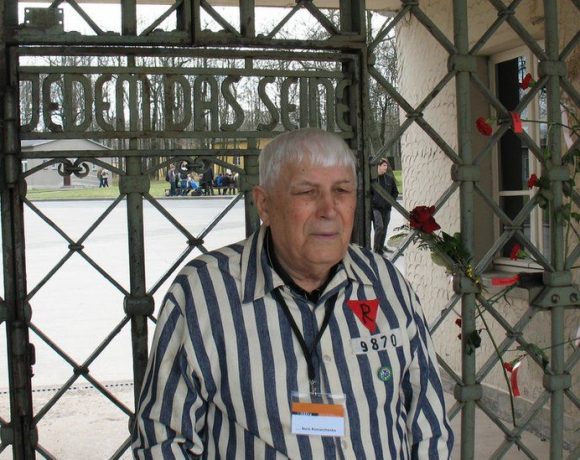In Poland, a beatification Mass ceremony was held to honor a Catholic family killed by Nazis for hiding Jews during World War II. Over 30,000 pilgrims and Poland’s president attended the outdoor service, led by an envoy of Pope Francis. This marked the first time an entire family has been beatified, a significant step toward sainthood.
The Ulma family, consisting of Jozef and Wiktoria Ulma and their six children, hid eight Jews in their farmhouse in Markowa, southeastern Poland, driven by their Christian values during late 1942. Among those sheltered were Saul Goldman and his sons, Baruch, Mechel, Joachim, and Mojzesz, as well as Golda Grunfeld, Lea Didner, and her daughter Reszla, as documented by Poland’s Institute of National Remembrance.
Contrary to Nazi-occupied western Europe, aiding Jews in occupied Poland carried a penalty of immediate execution. In 1944, it is believed that a Polish police officer betrayed the Ulma family, leading to their capture. German gendarmes killed the Jews hidden in the attic and then executed the Ulma family, including Wiktoria, who was seven months pregnant, in front of their young children, the eldest of whom was eight, and the youngest, just 18 months old. Subsequently, members of the Polish underground resistance executed the police officer responsible for the family’s betrayal.
The outdoor Mass on Sunday was presided over by Pope Francis’ envoy, Cardinal Marcello Semeraro. During the ceremony in Markowa, the Pope referred to the Ulma family as a “ray of light” amid the darkness of war and called for applause in St. Peter’s Square. President Andrzej Duda expressed gratitude to Pope Francis for the extraordinary beatification of the entire family, highlighting the importance of acknowledging the historical truth about that era.
In 1995, Israel’s Yad Vashem recognized Jozef and Wiktoria as “Righteous Among the Nations,” and the beatification process began in 2003. Beatification is a significant step in the Catholic Church toward canonization or sainthood, signifying that those beatified are deemed “blessed” and deserving of public veneration.
Poland was home to Europe’s largest Jewish community in 1939, and more Poles (over 7,000) have been honored by Israel for aiding Jews during the war than any other nationality. However, it’s important to note that some Poles also participated in the persecution and murder of Jews under the brutal Nazi occupation. Approximately six million Polish citizens lost their lives during the war, with half of them being Jews.
Prominent members of the Polish government, including Prime Minister Mateusz Morawiecki, attended the Mass. The government has faced accusations of attempting to reshape historical narratives by emphasizing Polish suffering at the hands of the Nazis and the aid provided to Jewish neighbors while suppressing research into cases of Poles who committed crimes against the country’s Jewish population.
picture courtesy: google/images are subject to copyright




